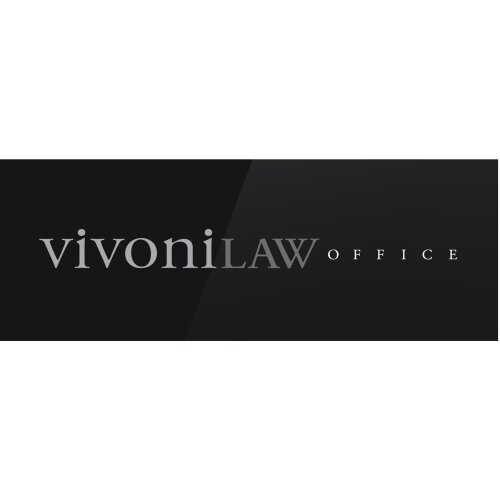Best Trademark Lawyers in Puerto Rico
Share your needs with us, get contacted by law firms.
Free. Takes 2 min.
Or refine your search by selecting a city:
List of the best lawyers in Puerto Rico
About Trademark Law in Puerto Rico
Trademark law in Puerto Rico is primarily governed by federal trademark laws since Puerto Rico is a territory of the United States. However, Puerto Rico also has its own laws that address the registration and protection of trademarks within its jurisdiction. This law is known as the "Trademark Act of Puerto Rico," which is designed to complement federal regulations and extend specific protections to businesses and individuals operating within the island. Trademarks serve to identify and differentiate goods and services from one entity with those of others, offering protection for the use of a particular word, phrase, symbol, or design.
Why You May Need a Lawyer
There are various situations where legal assistance regarding trademark matters might be necessary. These include:
- Trademark Registration: Filing for a trademark can be a complex process that requires a deep understanding of trademark laws and procedures both on a federal and local level.
- Trademark Infringement: If you believe someone is using your trademark without permission, or if you are accused of using someone else's, professional legal help can be crucial.
- Brand Protection Strategies: To ensure your brand is adequately protected across different media and regions, a strategic approach can benefit from legal expertise.
- Licensing and Assignment: Understanding the intricacies of licensing or transferring your trademark rights can be simplified with qualified legal guidance.
- Opposition and Cancellation Proceedings: A lawyer can assist you in navigating proceedings where your trademark is challenged or where you wish to challenge another's trademark.
Local Laws Overview
Trademark law in Puerto Rico aligns closely with federal U.S. trademark legislation but includes specific local provisions. Some key aspects are:
- The Puerto Rico Trademark Act mirrors many principles found in the U.S. Lanham Act but focuses on trademarks registered locally within Puerto Rico.
- Trademark rights are acquired through use in commerce, but registration provides the best protection and exclusive rights to use the mark across Puerto Rico.
- Local enforcement measures are available, including administrative and judicial proceedings, to handle cases of trademark infringement.
- Trademark holders in Puerto Rico enjoy particular rights and avenues for registration that might not exist in typical U.S. federal trademark procedures.
Frequently Asked Questions
What is the process to register a trademark in Puerto Rico?
To register a trademark in Puerto Rico, you should file an application through the Puerto Rico Department of State, providing necessary details about the trademark, its use, and classification.
Do I need to register my trademark locally if it's already registered federally?
While federal registration provides national coverage, local registration can offer additional protection and enforceability within Puerto Rico.
How long does a trademark registration last in Puerto Rico?
A trademark registration in Puerto Rico is initially valid for ten years from the registration date and can be renewed indefinitely for additional ten-year periods.
What constitutes trademark infringement in Puerto Rico?
Trademark infringement occurs when a party uses a trademark identical or similar to a registered mark in a way likely to cause confusion among consumers about the source of the goods or services.
Can I trademark a phrase or logo used in my business?
Yes, you can trademark phrases, logos, symbols, or any combination used to distinguish your goods or services, provided they meet certain distinctiveness and originality criteria.
Is it possible to transfer ownership of a trademark in Puerto Rico?
Yes, trademark ownership can be transferred through an assignment that must be documented and, ideally, recorded with the appropriate offices to ensure clear legal standing.
What happens if my trademark application is opposed?
If opposition is filed against your trademark application, it can initiate a legal proceeding where parties present arguments as to why the mark should or should not be registered.
Are there penalties for trademark infringement in Puerto Rico?
Penalties may include injunctions, monetary damages, and even the payment of attorney's fees and court costs depending on the severity and willfulness of the infringement.
How can I search for existing trademarks in Puerto Rico?
Conduct trademark searches through the Puerto Rico Department of State's database or consult with a legal professional to ensure thorough examination and analysis.
What is the role of the Puerto Rico Trademark Office?
The Puerto Rico Trademark Office, part of the Department of State, handles the registration, maintenance, and administration of trademarks within Puerto Rico.
Additional Resources
For more information or assistance regarding trademarks, consider these resources:
- Puerto Rico Department of State
- U.S. Patent and Trademark Office (USPTO)
- Local trademark attorneys and law firms specialized in intellectual property
- The World Intellectual Property Organization (WIPO)
- Intellectual property law associations with a focus on Puerto Rico
Next Steps
If you require legal assistance with trademark matters, consider taking the following steps:
- Consult a Professional: Schedule a consultation with a qualified trademark attorney who can offer personalized advice based on your situation.
- Research: Familiarize yourself with relevant laws and processes to better understand the context and what to expect.
- Prepare Documentation: Gather all necessary documentation related to your trademark, including evidence of use, applications, and any related correspondence.
- Consider Multiple Opinions: In complex cases, it might be beneficial to seek opinions from multiple experts to better assess the best course of action.
Lawzana helps you find the best lawyers and law firms in Puerto Rico through a curated and pre-screened list of qualified legal professionals. Our platform offers rankings and detailed profiles of attorneys and law firms, allowing you to compare based on practice areas, including Trademark, experience, and client feedback.
Each profile includes a description of the firm's areas of practice, client reviews, team members and partners, year of establishment, spoken languages, office locations, contact information, social media presence, and any published articles or resources. Most firms on our platform speak English and are experienced in both local and international legal matters.
Get a quote from top-rated law firms in Puerto Rico — quickly, securely, and without unnecessary hassle.
Disclaimer:
The information provided on this page is for general informational purposes only and does not constitute legal advice. While we strive to ensure the accuracy and relevance of the content, legal information may change over time, and interpretations of the law can vary. You should always consult with a qualified legal professional for advice specific to your situation.
We disclaim all liability for actions taken or not taken based on the content of this page. If you believe any information is incorrect or outdated, please contact us, and we will review and update it where appropriate.
Browse trademark law firms by city in Puerto Rico
Refine your search by selecting a city.









